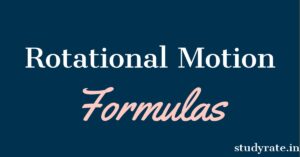The Indian Institute of Technology (IIT) makes the previous year’s JEE Advanced exam papers available on their website for candidates to use as practice material. You can find the previous year’s papers by visiting the JEE Advanced website (https://jeeadv.ac.in/) and clicking on the “Question Papers” link in the “Examination” section.
- Year-wise Solved Papers in Mathematics
- Year-wise Solved Papers on Physics
- Year-wise Solved Papers on Chemistry
- A Must for JEE Advanced preparation or getting an IIT
JEE Advanced Previous Year Questions
Solving previous year’s JEE Advanced questions can be a helpful way to practice for the exam and get a feel for the types of questions that are likely to appear. Keep in mind that the exam is revised and updated each year, so the questions from previous years may not be representative of the current exam. However, they can still be useful resources for practice and revision.
To prepare for the JEE Advanced exam, it can be helpful to practice with previous years’ question papers. These papers can give you an idea of the types of questions that are likely to appear on the exam and help you get a feel for the exam format and difficulty level.
2022 JEE Advanced PYQ with Solutions
| Paper 1 | Download PDF |
| Paper 2 | Download PDF |
2021 JEE Advanced PYQ with Solutions
| Paper 1 | Download PDF |
| Paper 2 | Download PDF |
2020 JEE Advanced PYQ with Solutions
| Paper 1 | Download PDF |
| Paper 2 | Download PDF |
2019 JEE Advanced PYQ with Solutions
| Paper 1 | Download PDF |
| Paper 2 | Download PDF |
2018 JEE Advanced PYQ with Solutions
| Paper 1 | Download PDF |
| Paper 2 | Download PDF |
2017 JEE Advanced PYQ with Solutions
| Paper 1 | Download PDF |
| Paper 2 | Download PDF |
2016 JEE Advanced PYQ with Solutions
| Paper 1 | Download PDF |
| Paper 2 | Download PDF |
Subject wise analysis of JEE Advanced PYQ
Physics
| Topic | 2019 | 2018 | 2017 |
| Electrodynamics | 8 | 8 | 12 |
| Heat and Thermodynamics | 6 | 4 | 5 |
| Mechanics | 9 | 15 | 11 |
| Modern Physics | 4 | 3 | 3 |
| Optics | 5 | 2 | 3 |
| Waves | 4 | 4 | 2 |
| Total | 36 | 36 | 36 |
Chemistry
| Topic | 2019 | 2018 | 2017 |
| Inorganic chemistry-1 | 4 | 3 | 8 |
| Inorganic Chemistry-2 | 6 | 7 | 2 |
| Organic Chemistry -1 | 1 | 0 | 2 |
| Organic Chemistry -2 | 11 | 12 | 10 |
| Physical chemistry -1 | 10 | 7 | 7 |
| Physical chemistry -2 | 4 | 7 | 7 |
| Total | 36 | 36 | 36 |
Mathematics
| Topic | 2019 | 2018 | 2017 |
| Algebra | 1 | 1 | 1 |
| Complex Numbers | 2 | 2 | 1 |
| Coordinate Geometry | 5 | 5 | 6 |
| Differential Calculus | 5 | 5 | 7 |
| Fundamentals of Mathematics | 0 | 1 | 0 |
| Integral Calculus | 6 | 8 | 6 |
| Mathematical Reasoning | 0 | 0 | 0 |
| Matrix & Determinants | 4 | 2 | 4 |
| Permutations & Combination | 2 | 2 | 2 |
| Probability | 2 | 2 | 2 |
| Quadratic Equations | 1 | 0 | 6 |
| Sequence and Series | 1 | 1 | 1 |
| Statistics | 0 | 0 | 1 |
| Trigonometry | 3 | 3 | 1 |
| Vectors | 4 | 4 | 2 |
| Total | 36 | 36 | 36 |
Keep in mind that the JEE Advanced exam is held annually, and the syllabus and difficulty level can vary from year to year. Therefore, it is important to use previous years’ question papers as a supplement to your studies, rather than relying on them exclusively.
Important Things To Know About JEE Advanced
The Joint Entrance Examination (JEE) Advanced is a competitive exam held annually for admission to undergraduate engineering programs at the Indian Institutes of Technology (IITs) and other top engineering institutes in India. Here are some important things to know about the JEE Advanced:
- Eligibility: To be eligible to take the JEE Advanced, you must be among the top 2,50,000 candidates in the JEE Main exam and meet other eligibility criteria, such as age limits and the number of attempts.
- Exam format: The JEE Advanced is a two-part exam consisting of Paper 1 and Paper 2. Each paper is 3 hours long and consists of multiple-choice and numerical answer-type questions.
- Syllabus: The JEE Advanced syllabus covers topics from physics, chemistry, and mathematics. The syllabus is based on Class 11 and 12 syllabi of the CBSE board, but it is more advanced and covers a wider range of topics.(Download JEE Advanced Syllabus: Click Here)
- Preparation: To prepare for the JEE Advanced, it is important to have a strong foundation in the relevant subjects, as well as good problem-solving skills. You should use a variety of study materials, such as textbooks, practice questions, and previous years’ question papers, to prepare for the exam.
- Scoring: The JEE Advanced is a highly competitive exam, and the cut-off marks for each institute vary based on the number of available seats and the number of candidates who take the exam. To increase your chances of getting a seat in a top institute, it is important to aim for a high score on the JEE Advanced.
I hope this information is helpful. Best of luck with your JEE Advanced preparation!
FAQ’s on JEE Advanced PYQ
A team of subject experts and educators from the IIT and other institutes is typically involved in the process of developing the JEE Advanced question paper. The team creates the questions based on the JEE Advanced syllabus and ensures that the questions are fair, relevant, and adhere to the prescribed difficulty level.
JEE Advanced consists of two papers (Paper 1 and Paper 2) of three hours duration each. Both papers are compulsory and only the responses of candidates who have appeared in both Paper 1 and Paper 2 will be evaluated.
In 2015, the JEE Advanced question paper was the toughest among all the year’s papers.
The last year, there were 108 questions asked in the JEE Advanced paper.



